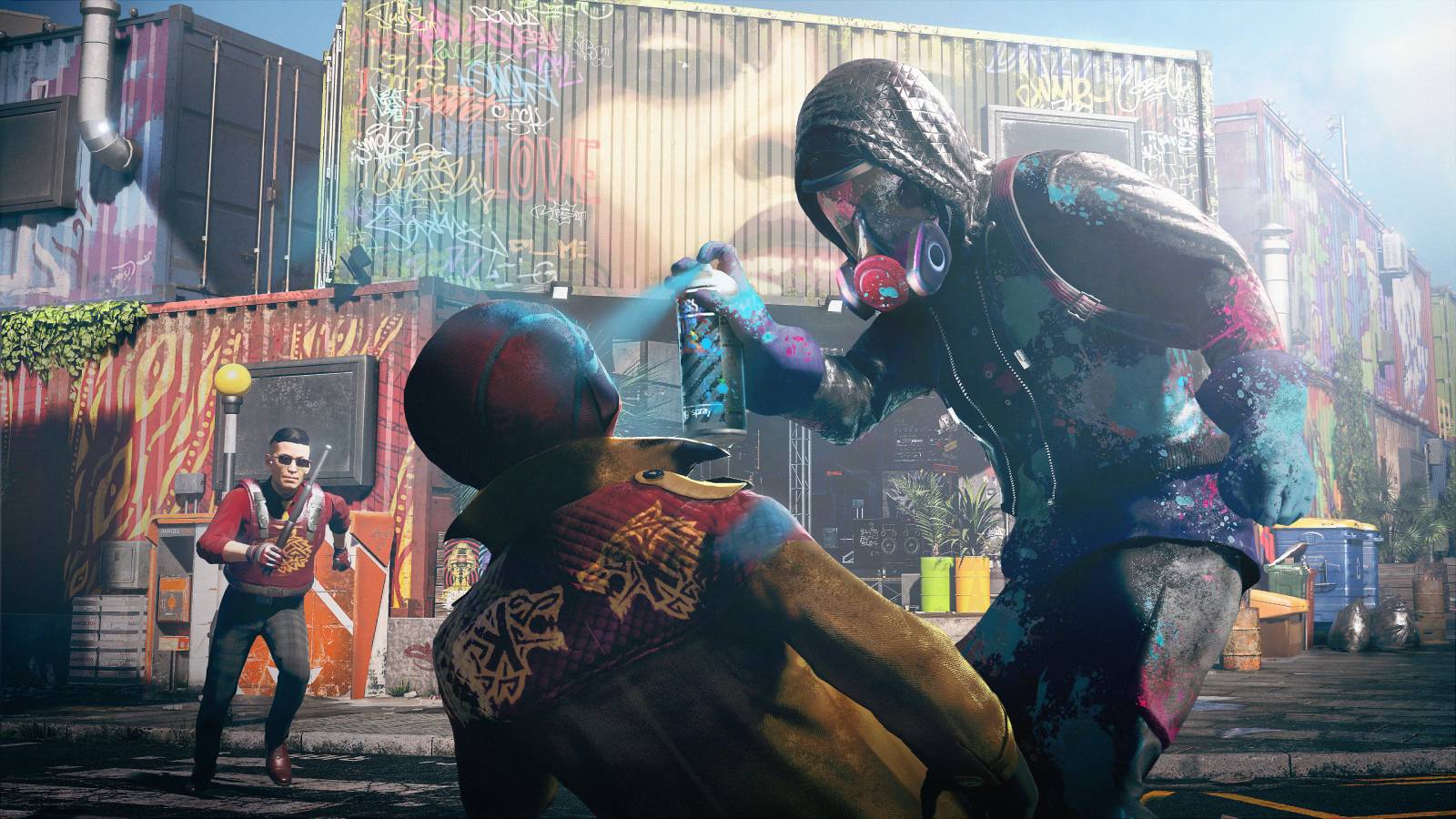Watch Dogs: Legion PC specs demand an Nvidia RTX 3080 for 4K ‘ultra’ settings
PC requirements are updated to include Nvidia’s new RTX 3000 GPUs

Sign up for breaking news, reviews, opinion, top tech deals, and more.
You are now subscribed
Your newsletter sign-up was successful
Watch Dogs: Legion has had its system requirements updated with Nvidia letting PC gamers know how it runs with the firm’s latest RTX 3000 graphics cards.
And the big news is that if you want to run Watch Dogs: Legion at 4K resolution with ‘ultra’ details then you’ll need an RTX 3080 GPU – or an RTX 2080 Ti. If you want 4K ultra with ray tracing on (ray tracing on ultra quality, with DLSS set to performance), then your only option is an RTX 3080 (or RTX 3090 of course) – the RTX 2080 Ti won’t suffice. (In the latter case, the CPU requirements on the Intel front have also been upped to a Core i9-9900K from a 9700K).
- We show you how to build a PC
- These are the best gaming monitors
- Best PC games: the must-play titles you don’t want to miss
What’s interesting here is that Nvidia is promising that the RTX 3070 will deliver ‘similar or faster’ performance than the outgoing RTX 2080 Ti, as we recently heard from the GPU maker, yet that isn’t the case with Legion here.
While the RTX 2080 Ti is good for 4K ultra with no ray tracing, the RTX 3070 isn’t, and you need a 3080.
Nvidia and Ubisoft also provided an additional set of specs for the requirements for ray tracing at 1440p with very high graphics settings (ray tracing on high, DLSS set to quality), and that’s where an RTX 3070 slots in as the recommended card. You’ll need to pair it with at least an Intel Core i7-9700 or AMD Ryzen 5 3600.
There are couple of further points worth highlighting, one of them being that the base spec (1080p resolution, low details) now calls for a GTX 970 graphics card (or GTX 1650) whereas the old spec allowed for a GTX 960. Sadly, it now seems that owners of the latter GPU are out of luck.
The better news is for 1080p with ray tracing on high graphics settings (ray tracing on medium, DLSS set to quality) the required GPU has been notched back from an RTX 2070 to an RTX 2060 (the CPU requirements have been scaled back a bit too).
Sign up for breaking news, reviews, opinion, top tech deals, and more.
Check out the new PC requirements for Watch Dogs: Legion in full below.
Watch Dogs: Legion system requirements
Low Setting | 1080p
- OS: Windows 10 64-bit
- CPU: Intel Core i5-4460 / AMD Ryzen 5 1400
- RAM: 8GB (dual-channel)
- GPU: Nvidia GeForce GTX 970 / GTX 1650 or AMD Radeon R9 290X
- Storage: 45GB
High Setting | 1080p
- OS: Windows 10 64-bit
- CPU: Intel Core i7-4790 / AMD Ryzen 5 1600
- RAM: 8GB (dual-channel)
- GPU: Nvidia GeForce GTX 1060 / GTX 1660 Super or AMD Radeon RX 480
- Storage: 45GB
High Setting | 1440p
- OS: Windows 10 64-bit
- CPU: Intel Core i7-9700K / AMD Ryzen 5 3600
- RAM: 16GB (dual-channel)
- GPU: Nvidia GeForce RTX 2060 Super or AMD Radeon RX 5700
- Storage: 45GB
Ultra Setting | 4K
- OS: Windows 10 64-bit
- CPU: Intel Core i7-9700K / AMD Ryzen 7 3700X
- RAM: 16GB (dual-channel)
- GPU: Nvidia GeForce RTX 2080 Ti / RTX 3080
- Storage: 45GB (+20GB HD Textures Pack)
Ray Tracing – High Setting | 1080p | RT Medium, DLSS Quality
- OS: Windows 10 64-bit
- CPU: Intel Core i5-8400 / AMD Ryzen 5 2600
- RAM: 16GB (dual-channel)
- GPU: Nvidia GeForce RTX 2060
- Storage: 45GB
Ray Tracing – Very High Setting | 1440p | RT High, DLSS Quality
- OS: Windows 10 64-bit
- CPU: Intel Core i7-9700K / AMD Ryzen 5 3600
- RAM: 16GB (dual-channel)
- GPU: Nvidia GeForce RTX 3070
- Storage: 45GB
Ray Tracing – Ultra Setting | 4K | RT Ultra, DLSS Performance
- OS: Windows 10 64-bit
- CPU: Intel Core i9-9900K / AMD Ryzen 7 3700K
- RAM: 16GB (dual-channel)
- GPU: Nvidia GeForce RTX 3080
- Storage: 45GB (+20GB HD Textures Pack)
Of course, buyers of Nvidia’s incoming RTX 3070 and existing 3080 and 3090 graphics cards will get Watch Dogs: Legion for free when the game comes out on October 29. If you can actually find an RTX 3000 GPU to buy, that is...
- Check out all the best multiplayer PC games
Darren is a freelancer writing news and features for TechRadar (and occasionally T3) across a broad range of computing topics including CPUs, GPUs, various other hardware, VPNs, antivirus and more. He has written about tech for the best part of three decades, and writes books in his spare time (his debut novel - 'I Know What You Did Last Supper' - was published by Hachette UK in 2013).